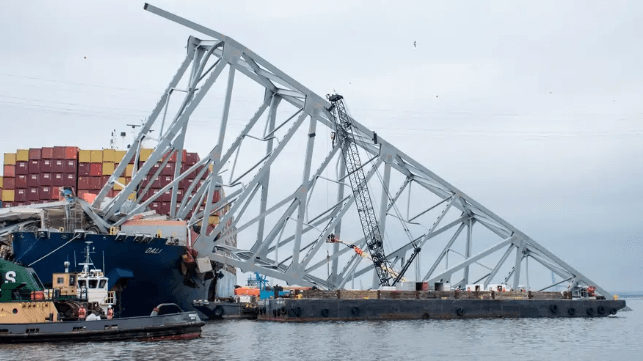Does the Maritime Industry Value the Critical Work of Salvors?

The marine salvage industry is a vital part of the shipping industry ecosystem, and the International Salvage Union (ISU) is the association that represents the world’s salvage contractors. The core purpose of the ISU is to be the “credible, trusted and unified global voice of its members who facilitate world trade by providing marine services which save life, protect the environment, mitigate risk and reduce loss.” And that statement truly does capture the essence of our association.
As such, we have a firsthand view of the state of the industry, based on our data. The news is that the salvage industry remains under financial pressure as the ISU’s annual salvage industry statistics indicate – at a time when the impact of casualties is getting larger, particularly with container ships, and also because of the greatly increased amount of bunkers carried by the largest ships.
The ISU statistics show gross revenues from all sources in 2024 (latest figures) at USD $406 million, which indicates a continuation of the recovery that started in 2023 compared with the historically low levels seen in 2022. Income is still substantially down on the typical levels of a decade ago, however.
We are encouraged that shipowners and the marine insurance community openly recognize the importance of our industry and the need for it to be financially sustainable.
ISU believes that the cornerstone of the funding of the industry should be income from awards based on Article 13 of the Salvage Convention. In short, it means a reward for the mostly commercial salvors who go to the aid of casualties at their own financial risk in the expectation that, if they succeed in saving property, they should receive an award based on the values salved and other factors like the danger of the situation.
Traditionally the key contract for such services was the Lloyd’s Open Form (LOF), but its use has decreased significantly in recent years. ISU continues to promote use of LOF - and the new edition published last year. We are realistic about the number of times the contract will be used each year, but we hope for an upturn, and so we shall follow developments with the new LOF closely.
Wreck removal is an important part of most salvors’ work and generally produces about 50% of the industry’s annual income. Much of this work (and indeed other marine services) is conducted using the BIMCO suite of wreck removal contracts—Wreckstage (lump sum payable in stages), Wreckhire (daily hire payments), and Wreckfixed (lump sum payment on a no-cure, no-pay basis). Work is ongoing to revise the contracts: a new edition of Wreckstage was published in 2024 and ISU along with other stakeholders are now working on revisions to Wreckhire and we look forward to continuing that work and then turning our attention to the Wreckfixed contract.
Turning to operational matters, last year saw ISU members respond effectively to the Baltimore bridge disaster - removing the collapsed bridge debris in difficult conditions and refloating the containership DALI. It was a case which demonstrated in practice the ISU’s key messages about the value of professional salvors in reducing loss, saving property, and keeping ports open.
Fires on containerships and battery fires in car carries and on RoRos are a continuing and significant concern. ISU members are often the only agency available to deal with such incidents and have a proud track record in this specialized field. Dealing with casualties that are powered by new types of fuel - LNG, hydrogen and ammonia - will be an increasing focus for the industry.
As well as saving life and property, salvors continue to prevent major incidents of marine pollution. In 2024 ISU members provided services to vessels carrying more than 2.4 million tonnes of potential pollutants. It shows the great environmental benefit of the salvage industry as well as the benefit of protecting shipowners’ reputations and supporting their Environmental, Social and Governance (ESG) requirements, which are now central to business operations.

that matters most
Get the latest maritime news delivered to your inbox daily.
It is never difficult to make the case for the professional salvors who are the members of the ISU, and we are sure that the wider industry and our key stakeholders will continue to support us in our vital work.
James Herbert is Secretary General of the International Salvage Union.
The opinions expressed herein are the author's and not necessarily those of The Maritime Executive.
